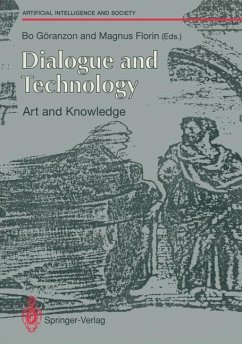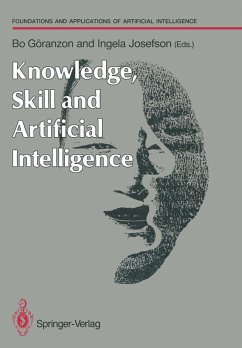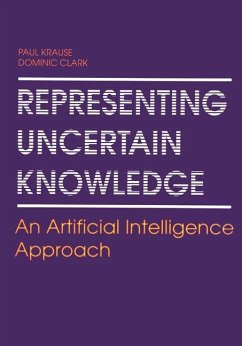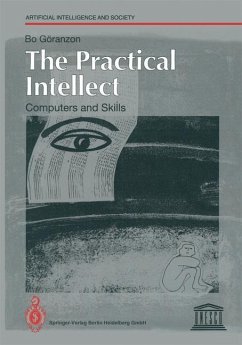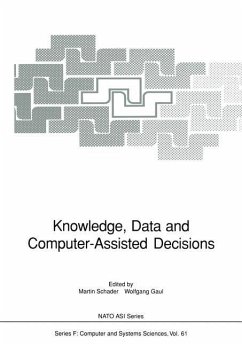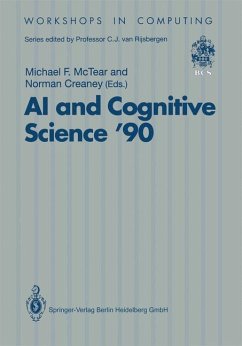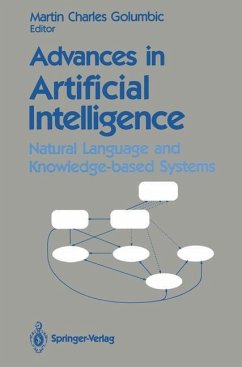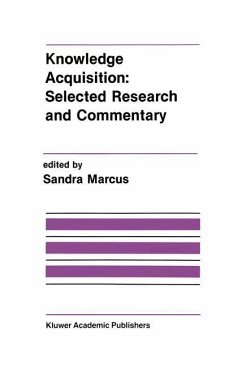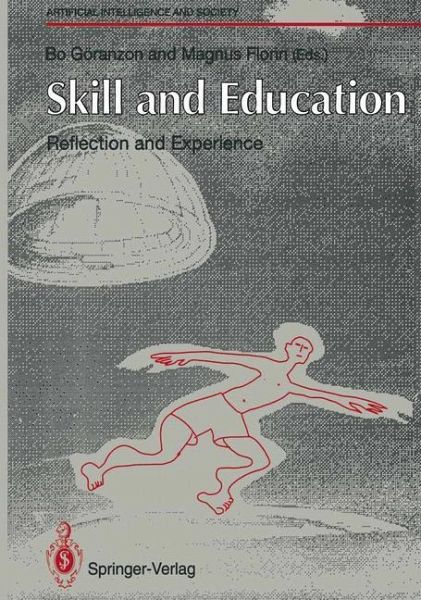
Skill and Education: Reflection and Experience

PAYBACK Punkte
20 °P sammeln!
This book has an important starting point in the conference held in Stockholm in May-June 1988 on Culture, Language and Artifidal Intelligence. It assembled more than 300 researchers and practitioners in the fields of technology, philosophy, history of ideas, literature, linguistics, sodal science etc. The conference was an initiative from the Swedish Center for Working Life, based on the project AI-Based Systems and the Future of Language, Knowledge and Responsibility in Professions within the COST 13 programme of the European Commission. Partidpants in the conference and researchers related ...
This book has an important starting point in the conference held in Stockholm in May-June 1988 on Culture, Language and Artifidal Intelligence. It assembled more than 300 researchers and practitioners in the fields of technology, philosophy, history of ideas, literature, linguistics, sodal science etc. The conference was an initiative from the Swedish Center for Working Life, based on the project AI-Based Systems and the Future of Language, Knowledge and Responsibility in Professions within the COST 13 programme of the European Commission. Partidpants in the conference and researchers related to its aims were chosen to contribute to this book. It is preceded by Knowledge, Skill and Artificial Intelligence (ed. B. Göranzon and I. Josefson, Springer-Verlag, 1988), Artifidal Intelligence, Culture and Language (ed. B. Göranzon and M. Florin, Springer-Verlag, 1990) and Dialogue and Technology: Art and Knowledge (ed. B. Göranzon and M. Florin, Springer-Verlag, 1991). The two latter books have the same conference connection as this one, and their aim is to present the contours of a research field with a multitude of issues that demands thorough investigation. The contributors' thinking in this field varies greatly; so do their styles of writing. For example: contributors have varied in their choice of "he" or "helshe" for the third person. No distinc tion is intended, but chapters have been left with the original usage to avoid extensive changes. Similarly, individual contribu tor's preference as to notes or reference lists have been followed.





